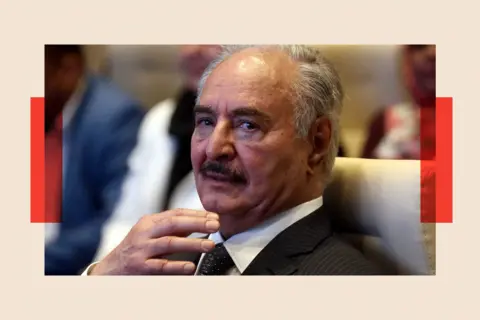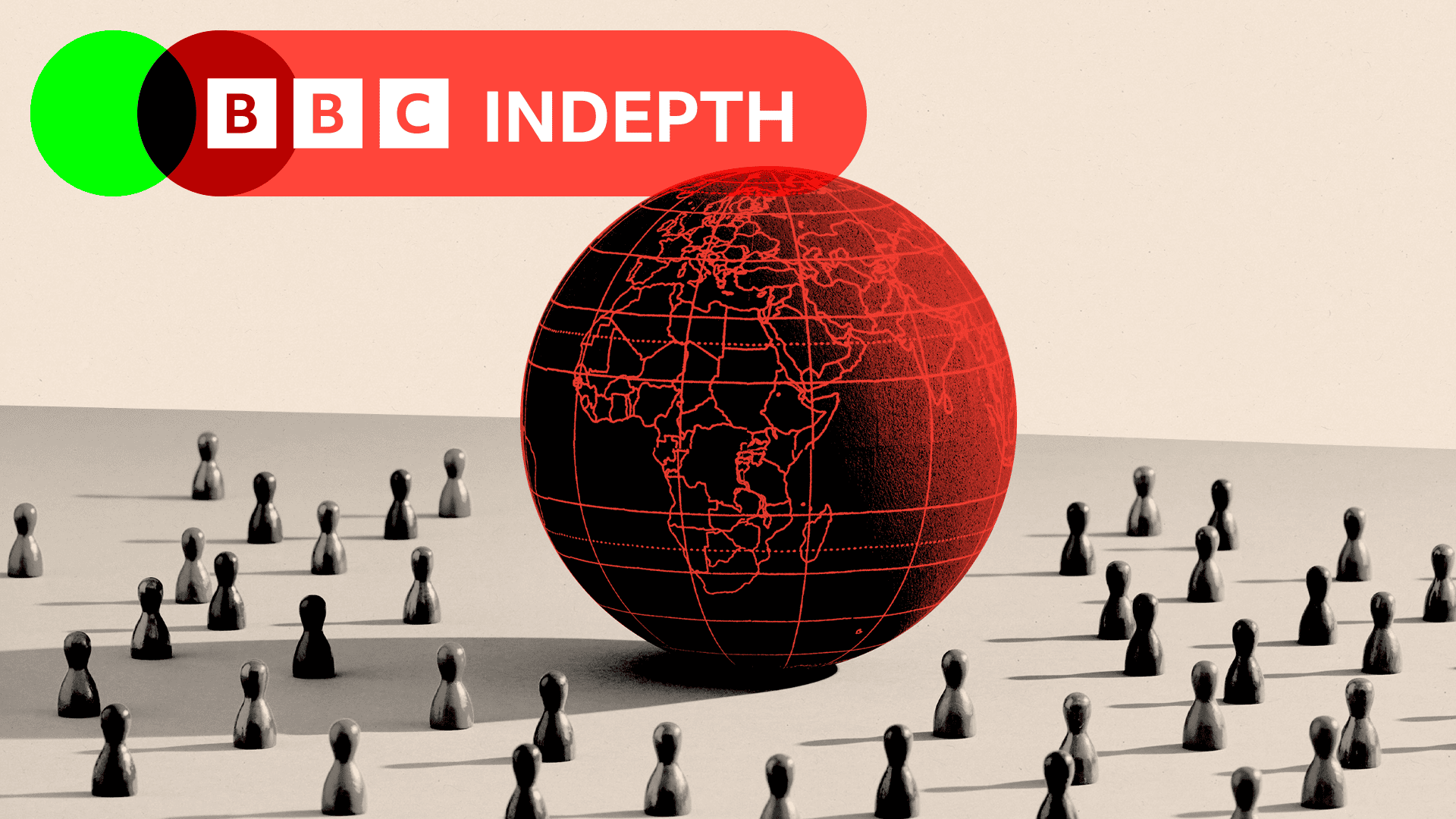The sudden toppling of Syria's President Assad, North Korean soldiers fighting for Russia. British and US missiles sent to Ukraine and fired at Russia, Iranian missiles shipped to Russia. US-armed Israeli air strikes in Lebanon and Gaza, Yemeni missiles fired at Israel.
It's a complex and confusing web of conflicts and it prompts the inevitable question: Are the world's battle lines becoming ever more interconnected?
Let's get one thing straight: this is not World War Three, although President Putin does like to dangle that menace to scare the West away from sending more powerful weapons to Ukraine. But it's clear that many of the conflicts on our planet have an international dimension, so how do these lines join up?
The wars of 2024 brought together rivals - but created new enemies
Frank Gardner
The Middle East: A chessboard upended
Taiwan and China: When, not if
The Ukraine war has now shown itself to be almost certainly unwinnable, at least for Ukraine. Russia has ramped up its defence industrial machine to the extent it can now partially overwhelm Ukraine's air defences and its front lines but not so much that it can take the whole country. Yet Ukraine's position now looks weaker than at any time since the early months of the full-scale invasion.
The war has become increasingly internationalised, with North Korean troops arriving in Europe to fight on Russia's side and the West giving the green light for Ukraine to fire its long-range missiles into Russia.
Sweden has now joined Nato, meaning that eight Nato countries now border the Baltic Sea where Russia maintains two strategic footholds, in St Petersburg and Kaliningrad. There have been several incidents of so-called "hybrid warfare" in the Baltic, where Russia is suspected of purposefully damaging undersea communications cables."
WESTERN MYOPIA IN LIBYA:
A US citizen wants to overthrow a US-backed government in Libya. Here’s why
- He took part in the Libyan contingent against Israel in the Yom Kippur War of 1973.[5]
- In 1987, he became a prisoner of war during the war against Chad after being lured into a trap and captured, which was then a major embarrassment for Gaddafi and represented a major blow to Gaddafi's ambitions in Chad.
- While being held prisoner, he and his fellow officers formed a group hoping to overthrow Gaddafi.
- He was released around 1990 in a deal with the United States government and spent nearly two decades living in the U.S. in Langley, Virginia, and gained U.S. citizenship.[6][7]
- In 1993, while living in the United States, he was convicted in absentia of crimes against the Great Socialist People's Libyan Arab Jamahiriya and sentenced to death.
RELATED
Project Opus[edit]
On April 14, 2019, Erik Prince made a proposal of a $80 million deal to Libya's militia leader Khalifa Haftar to supply aircraft and other military equipment.
- The plan was designed to supply intelligence surveillance aircraft, drones, armed assault helicopters, maritime interdiction, and cyber intelligence and targeting capabilities to Haftar's forces.
- The project was, however, aborted in June 2019.[79]
- The planning, management and financing of the Prince's project was done using three firms from the United Arab Emirates, including Lancaster 6 DMCC, L-6 FZE and Opus Capital Asset Limited FZE, which were using a web of shell companies.[80][81]
Africa: Moscow's new backyard
 Getty Images
Getty Images- Moscow clearly sees Libya as both a springboard for projecting its global reach in the Mediterranean and also as a staging post for its mercenary activities further south in Sudan and the Sahel.
The Russian mercenary group formerly known as Wagner and now rebranded as "Afrika Korps" have successfully supplanted French and other Western forces in the Sahel nations and former French colonies of Mali, Burkina Faso, Niger and Central African Republic.
This means Russia has effectively inherited the IS jihadist problem in those countries but in the meantime it is enriching itself from lucrative deals that see mineral and other wealth flowing back to Moscow.
Ukraine recently appeared to take a wrong turn in this area by enabling a major attack on Malian government forces and their Russian mentors in July.
- Ukrainian Special Forces reportedly supplied drones and training to Tuareg rebels that resulted in an ambush, killing 84 Russian mercenaries and 47 Malian soldiers.
- Kyiv is clearly trying to "take the fight to the enemy" but if they were responsible for supplying the drones, this move is widely considered to have backfired.
- Ukraine has denied involvement.

.gif)




.gif)



No comments:
Post a Comment